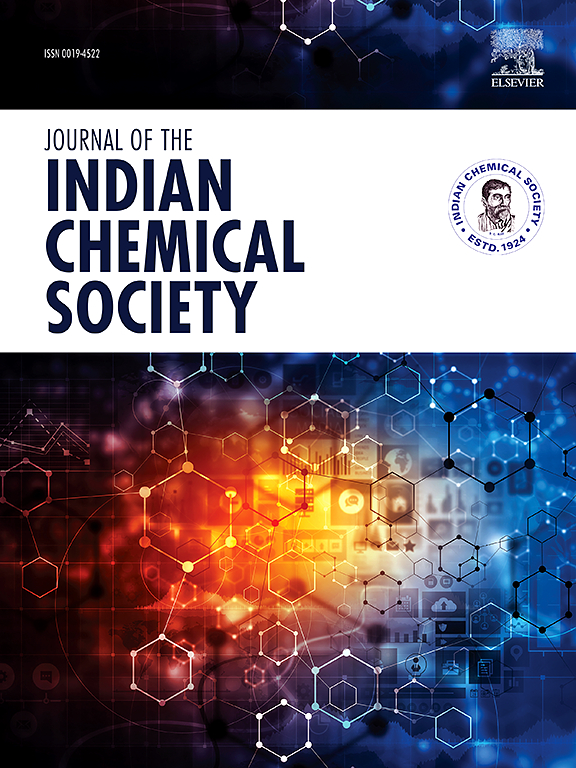Phase behavior prediction model and enthalpy analysis of carbon dioxide/propane gas hydrate formation in salts water
IF 3.2
4区 化学
Q2 CHEMISTRY, MULTIDISCIPLINARY
引用次数: 0
Abstract
Gas hydrate-based desalination (GHBD) has emerged as an innovative solution for addressing global water scarcity by utilizing hydrate formation to separate water from saline solutions. This study presents a comprehensive thermodynamic model for predicting hydrate equilibrium conditions in saline systems, particularly under high salinity and mixed gas compositions. The model incorporates salt-specific corrections to account for reduced water activity and salting-out effects, which are critical in systems containing NaCl, KCl, and CaCl2 at concentrations up to 5 wt%. It is validated against experimental data, focusing on gas mixtures with propane (C3H8) proportions ranging from 5 to 15 mol%. Comparative analysis reveals that the proposed model outperforms conventional equations of state, such as Peng-Robinson (PR) and Soave-Redlich-Kwong (SRK), achieving a mean absolute deviation below 8 % even in challenging scenarios. The findings highlight the significant influence of salt type and concentration on hydrate stability, with NaCl exhibiting the strongest inhibitory effect. The developed model offers enhanced accuracy and reliability for designing GHBD systems in diverse environmental and operational conditions, paving the way for its integration into sustainable water desalination technologies.

求助全文
约1分钟内获得全文
求助全文
来源期刊
CiteScore
3.50
自引率
7.70%
发文量
492
审稿时长
3-8 weeks
期刊介绍:
The Journal of the Indian Chemical Society publishes original, fundamental, theorical, experimental research work of highest quality in all areas of chemistry, biochemistry, medicinal chemistry, electrochemistry, agrochemistry, chemical engineering and technology, food chemistry, environmental chemistry, etc.

 求助内容:
求助内容: 应助结果提醒方式:
应助结果提醒方式:


